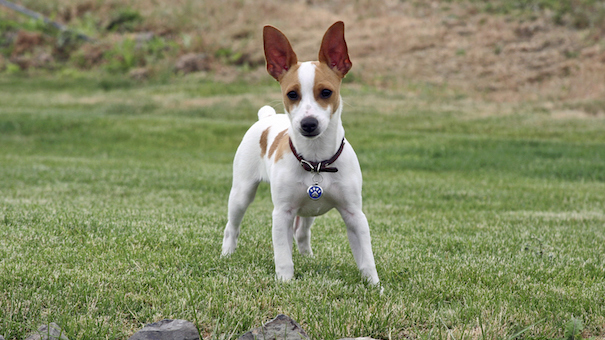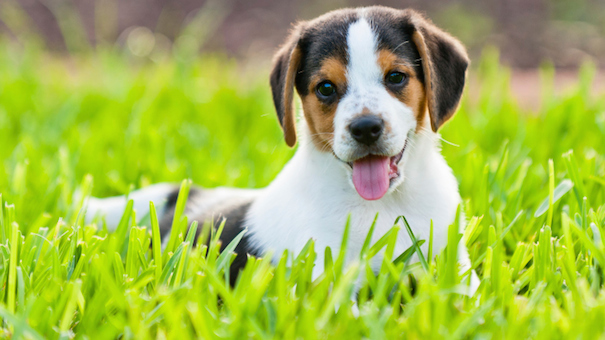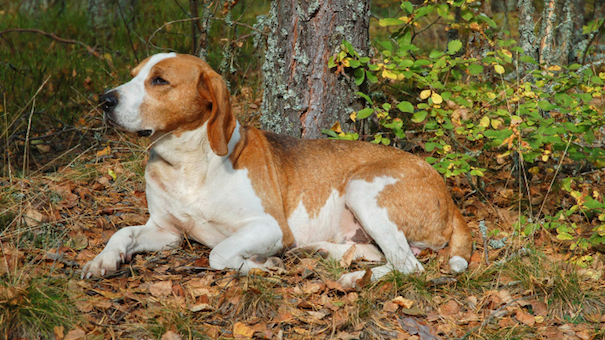Pets can be a delightful addition to your household, but they aren't cheap, and dogs can be especially tough on families looking to save.
If you're looking to bring a canine into your life, there's a lot to consider from a financial perspective. There's the cost to buy the dog, of course. But then it's important to factor in the cost of ownership during the dog's lifetime. There's food, visits to the veterinarian, grooming sessions, and insurance, as well as dog walking, daycare, and other services you may need. This can add up to more than $1,000 annually, and can truly skyrocket if your dog has serious health problems.
The good news is that there are many dogs that, relatively speaking, can be bought and cared for without busting your household budget.
We've provided a list here of dog breeds that are considered relatively inexpensive to own. They have a number of things in common: They are smaller in size, relatively easy to groom, and are generally pretty healthy. (Note that this list applies to purebreds only — mixed breeds will be even less expensive.)
While many of these dogs are good-natured, they are also energetic and may give a beating to your carpets and furniture. So take that into account when factoring the cost of owning the dog.
We've given each dog a "Wags for Your Buck" score, based on a 10 point scale and reflecting the total cost of ownership of the dog. (The more wags, the better value.)
Rat Terrier

Cost to Acquire: May be had for as little as $200, but expect to pay between $400 and $600 in most cases.
Food: There are three sizes of rat terriers, but even the largest ones top out at under two feet tall and 35 pounds in weight. These dogs have no unique dietary needs, but some rat terriers do have allergies that may necessitate special food.
Grooming: Because of their short hair, rat terriers are among the easiest dogs when it comes to grooming. Just the occasional brushing to remove dead hair will suffice.
Health: These are generally healthy dogs and are not quite as susceptible to some of the genetic maladies that affect other smaller dogs. Some rat terriers have incorrect issues that may require surgery as dogs get older. Smaller Rat Terriers may be susceptible to hip dysplasia or dislocated kneecaps.
Wags for Your Buck: 7
Affenpinscher

Cost to Acquire: These dogs can be purchased for several hundred dollars from breeders or rescues, but prices did go up after an Affenpinscher won the Westminster dog show in 2013.
Food: These are some of the smallest dogs around, usually topping out at about 10 pounds, so they won't eat you out of house and home. Half a cup of dry dog food should do the trick each day.
Grooming: Because these are small dogs, grooming is not a major chore, but they do have coarse hair that you'll need to take care of from time to time.
Health: Affenpinschers are healthy canines, but they can be prone to fractures and other orthopedic problems. Affenpinschers generally live about 11 years, which is a shorter lifespan than many dogs.
Wags for Your Buck: 7
Australian Terrier

Cost to Acquire: These spirited dogs may not be easy to find unless you buy direct from a breeder. (I was unable to find any available to adopt in my area.) These are small dogs, but don't be surprised if you end up paying $750 or more for a puppy.
Food: Like Affenpinschers, these are small dogs that weigh in at less than 15 pounds.
Grooming: Petfinder.com suggests going in for a professional grooming about twice a year. Otherwise, trim around the feet and your dog should be in fine shape.
Health: Like other small dogs, Australian Terriers are generally healthy, but keep an eye out for fractures and hip dysplasia. These dogs live an average of about 11 years.
Wags for Your Buck: 8
Feist

Cost to Acquire: These small and energetic hunting dogs can be had for under $200, possibly less if you find one to adopt.
Food: Feist dogs rarely top 30 pounds, so they won't eat more than a moderate amount, though you may find that they'll eat more than expected due to their energetic nature.
Grooming: Unlike other smaller canines, feist dogs are not particularly hairy, and so grooming won't represent a major expense. Just brush them regularly and remove any dead hair.
Health: These are healthy dogs, but they are extremely active, and therefore more susceptible to injury than other breeds. Life span is about 11 years, which is average for a dog this size.
Wags for Your Buck: 7
Beagle

Cost to Acquire: $500 to $850, though you may find one for less from rescues.
Food: Beagles are a bit larger than some of the other dogs on this list, but can still be fed for less than $10 a week. They stand anywhere from 13 to 15 inches, weighing in at 22 to 25 pounds.
Grooming: Beagles have short and smooth coats, so they don't require heavy grooming. They do shed, but that can be handled by brushing the dog at home a few times a week.
Health: Beagles are healthy dogs, but have been known to get some forms of cancer, and some do suffer from heart arrhythmia. Life expectancy is good, between 12 and 15 years.
Wags for Your Buck: 6
Foxhound

Cost to Acquire: English or American Foxhounds can be bought for as little as $200, and may even be available from shelters and rescues.
Food: These hounds are larger dogs, coming in at between 65 and 75 pounds. So they will eat more than the small dogs listed here. However, they still can be fed for less than $25 a week.
Grooming: These are short-haired canines, for the most part. Frequent brushing will be needed, but fancy grooming isn't required.
Health: These are healthy dogs and are free from many of the genetic maladies that plague some pure breeds.
Wags for Your Buck: 6
What's your favorite breed or mix? How many wags for your buck does your dog give you?
ShareThis



















